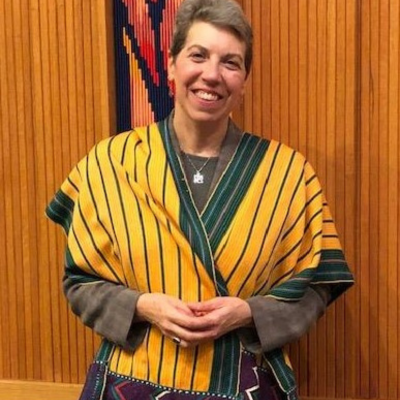A driver in my New York county was recently pulled over a few blocks from his home. When he asked why he was pulled over, the officer offered a reason. When the driver was able to disprove the officer’s concern, he was given a ticket for a previously unmentioned and unrelated issue.
In case you are wondering, the driver was Black.
The statistics are stark. In my county, Black and brown people are:
- 4 times more likely to be stopped by the police while driving.
- 5 times more likely to be pulled over, not for a safety violation, but for a regulatory violation like an equipment issue.
- 15 times as likely to be searched for drugs or weapons.
- 24 times more likely to be frisked.
- 13 times as likely to be forcibly removed from the car.
- 14 times as likely to be placed in the back of the police car.
- 20 times as likely to encounter a police dog during a traffic stop.
- 12 times as likely to be physically restrained.10 times as likely to be arrested.
Find more commentaries on Parshat Ekev.
These numbers come directly from police data, as do statistics that show that Black and brown people are actually less likely than white people in our county to be found with weapons or drugs in their vehicles.
It is indisputable that there is serious, ongoing, and systemic racism in the institution of American law enforcement. Alongside that, my experience as a member of our county Human Rights Commission and of my town’s Anti-Bias Task Force has me working closely with the officers from my precinct and the Hate Crimes Unit who have spent their careers fighting bias crimes. I am grateful for their work and partnership while at the same time am concerned about the realities of unequal treatment in policing.
This tension reflects a larger reality of both the brokenness and possibility of our world.
This week’s Torah portion, Ekev, points to God, God supreme and Lord supreme, who “shows no favor,” or literally “does not raise up faces” (Deuteronomy 10:17). In my county, and in our country, white faces are raised up, or waved through, while Black and brown faces are stopped. The 19th century Italian commentator Shadal comments on this verse: Being all equal before God, God becomes supreme over all. When all are treated equally, and only then, will God take God’s rightful place supreme over all. Until then, God is diminished in our world.
At the same time, God is the Ein Sof, without end, beyond separation and difference. God is the wholeness that includes all. This wholeness is, however, very far away. We have been in exile from each other and from God since Adam blamed Eve for eating the fruit and God expelled them from the garden. The world we live in is one of separations and distinction. How can we get ourselves closer to God in whom all are one? Ekev teaches a spiritual path:
“Circumcise the thickening of your hearts and stiffen your necks no more” (Deuteronomy 10:16). It is not an easy thing to soften ourselves, which is perhaps why the text says “cut away”—it may be easier to cut and heal than to soften what has become calloused (and callous).
Find more commentaries on Racial Justice.
One way to work on unstiffening our necks and making sure no head gets unduly raised lies in a new assignment that our Human Rights Commission recently received: providing civilian oversight to complaints of police misconduct. The opening story above is one of the complaints brought to our attention. The main goal of civilian oversight is increased transparency. Until now, complaints, investigations, and dispositions have all resided within the Internal Affairs Bureau of the Police Department.
This is not a unique situation; there are more than 18,000 police departments in the country, but only about 350 of them have civilian oversight bodies. When oversight remains within the department, which is susceptible to “raising up faces,” it is obviously much less effective.
I am hopeful that civilian oversight is one way of bringing people together in the work of building safe communities and a fuller manifestation of the divine.
Rabbi Lina Zerbarini is spiritual leader of Kehillath Shalom Synagogue, a Reconstructionist congregation on Long Island. She serves on the Suffolk County Human Rights Commission and the Huntington Anti-Bias Task Force.


